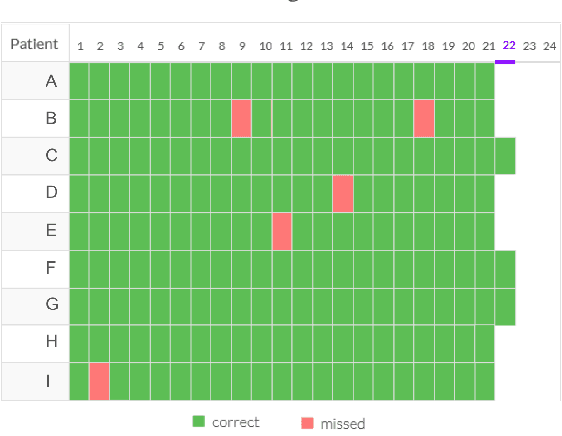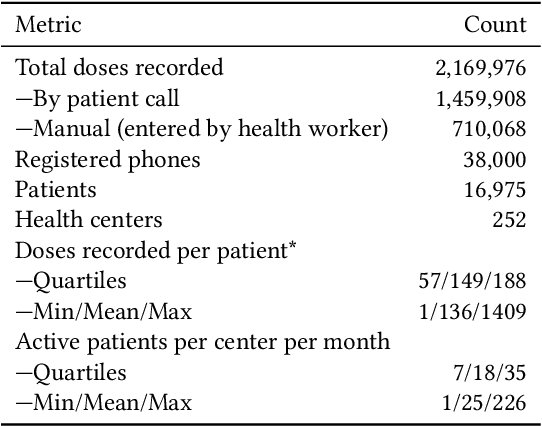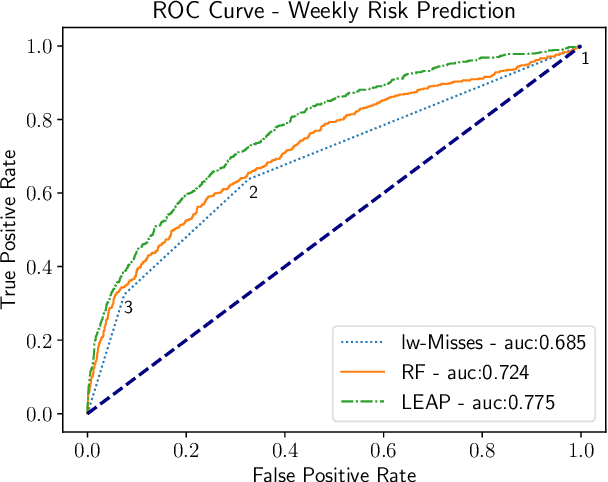Vinod Choudhary
Learning to Prescribe Interventions for Tuberculosis Patients using Digital Adherence Data
Feb 05, 2019



Abstract:Digital Adherence Technologies (DATs) are an increasingly popular method for verifying patient adherence to many medications. We analyze data from one city served by 99DOTS, a phone-call-based DAT deployed for Tuberculosis (TB) treatment in India where nearly 3 million people are afflicted with the disease each year. The data contains nearly 17,000 patients and 2.1M phone calls. We lay the groundwork for learning from this real-world data, including a method for avoiding the effects of unobserved interventions in training data used for machine learning. We then construct a deep learning model, demonstrate its interpretability, and show how it can be adapted and trained in three different clinical scenarios to better target and improve patient care. In the real-time risk prediction setting our model could be used to proactively intervene with 21% more patients and before 76% more missed doses than current heuristic baselines. For outcome prediction, our model performs 40% better than baseline methods, allowing cities to target more resources to clinics with a heavier burden of patients at risk of failure. Finally, we present a case study demonstrating how our model can be trained in an end-to-end decision focused learning setting to achieve 15% better solution quality in an example decision problem faced by health workers.
 Add to Chrome
Add to Chrome Add to Firefox
Add to Firefox Add to Edge
Add to Edge